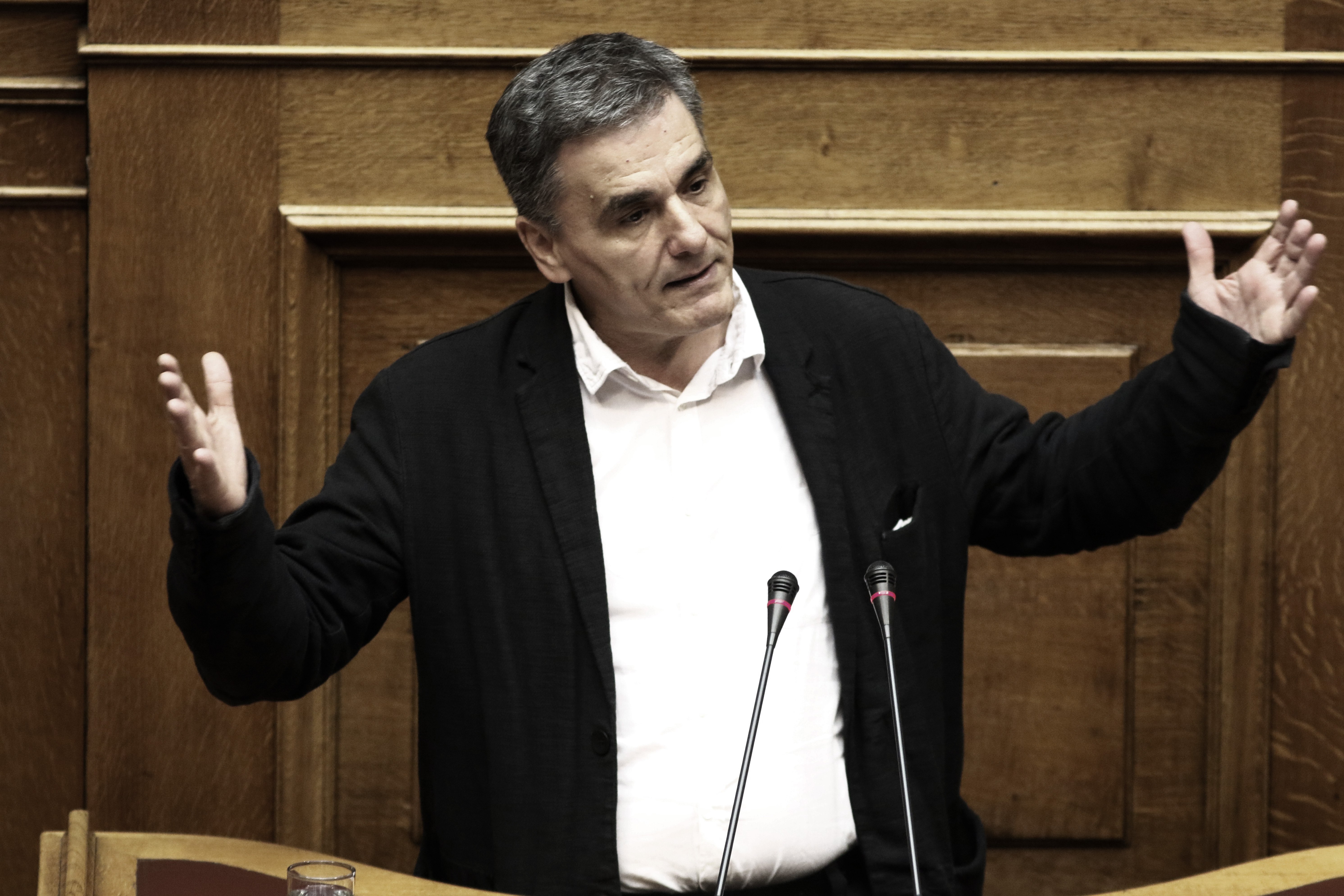Finance Minister Euclid Tsakalotos defended the government’s “social dividend” handouts to the poorest taxpayers, even as opposition parties that charged the handouts come from the huge over-taxation of the middle class were poised to vote in favour of the 1.4 billion euro benefits package.
“This is part of a comprehensive answer to the crisis. We are not benefactors, but we are not living in the best of times, but this is better than us going home. We are not going home, Tsakalotos told a plenary session of parliament before the vote on the package.
Tsakalotos defended the government’s over-taxation of the middle class in order to assist the poorest segments of society. “In a country that has lost 25 percent of its income, should we not have made dealing with the humanitarian crisis a priority?” he asked.
“Don’t tell us that we targeted the middle class. What would you have done? This is a class-based policy that that is designed to help not only the poor, but also the least affluent segment of the middle class,” Tsakalotos said, accusing the parties that governed Greece for 40 years of never having created a stable tax scheme for the middle class.
“We have a strategy for workers, for labour relations, for the middle class and tax breaks, but it is a different strategy. What can the middle class expect from you? Have you explained to them that you plan health and education cutbacks?” said Tsakalotos in rapid-fire rhetorical questions for opposition parties.
New Democracy rapporteur Yannis Vroutsis, a former labour and social insurance minister, blasted the government’s social welfare handouts, asserting that it is the product of disastrous over-taxation, but he confirmed that the main opposition will support the bill.
Vroutsis also criticised the government for the slow rate at which unemployment is dropping.
“You issue triumphant declarations about the generation that earns 360 euros in monthly wages, and you accuse us for having stated that the recipients of the benefits will be paying 7.5 billion euros in taxes and contributions until 2022,” Vroutsis said.




